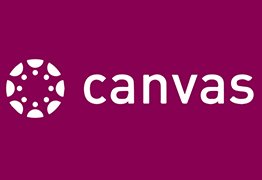For students attending the course Integrated physiology and pharmacology (30 credits) course code 4FF015
The aim of the course is to provide a foundation in integrated physiology and pharmacology so that students later in the programme will be able to benefit from practical components and transfer physiological and pharmacological principles to academic and clinical settings. Course components range from molecular and cell-based physiology and mechanism-oriented pharmacology to organ-based physiology, pathophysiology, and disease treatment.
Syllabus

Schedule
Link to schedule. Schedule for autumn 2026 is published in August.
Registration
Registration is mandatory in order to keep your place and participate in the course. You register yourself in Ladok. The registration period is from August 17 until September 2, 2026.
About the course
The course is held on KI campus Solna with full-time teaching (100%). Full-time teaching corresponds to 40 hours of study per week.
The course starts on August 31, 2026 and ends in mid-January 2027.
The course will include the functions of the organs during:
- normal/healthy conditions,
- abnormal conditions/diseases, and
- pharmacological/non-pharmacological treatment to create an integrated understanding of the subject areas.
Through knowledge in the major subject, the purpose is further that the student should be able to assimilate practical elements and understand how physiological and pharmacological principles can be applied.
The course is divided into four parts that are examined separately:
Part 1. Introduction, 3.0 credits
This part contains:
- Introduction to translational physiology and pharmacology
- Sustainability, identification of sustainability aspects in research and development
- Ethics and medical ethics
- Introduction to Team-Based Learning (TBL)
Part 2. Regulation and Defense, 8.0 credits
This part contains:
- Pharmacokinetics, pharmacogenetics, pharmacodynamics and receptor pharmacology
- Physiology, pathophysiology and pharmacology of the nervous system, endocrinology and reproduction
- Immune system, inflammation and anti-inflammatory treatment
- Innovation and entrepreneurship
Part 3. Circulation, Respiration, Renal Function, Digestion, Muscle and Adaptation, and Cancer, 10 credits
This part contains:
- Physiology, pathophysiology and pharmacology of the heart and circulation, respiration, renal function, gastrointestinal tract, muscle and adaptation
- Cancer and cancer treatment
Part 4. Application and Integration, 9.0 credits
This part contains:
- Environmental physiology
- Physiological integration and pharmacological treatment of systemic diseases
- Practical laboratory exercises and pharmacological calculations
- Introduction to ATMP (Advanced Therapy Medicinal Products)
The mode of teaching during the course is manly TBL (Team-Based Learning). TBL is a structured form of small-group learning that emphasizes student preparation out of class and application of knowledge in class. The students will work together in smaller groups during TBL and the teaching is centered around student commitment and active participation and collaboration. In addition, the course includes introductory lectures, workshops, laboratory sessions, seminars, and journal clubs.
Contact
Jessica Norrbom
Course directorCarl Johan Sundberg
ExaminatorGottfried Gemzell
Team ManagerCourse evaluation and course analysis

Log in to Canvas
In the learning platform Canvas, you will find the courses you are admitted to. You log in to Canvas with your KI ID and password.

Student at KI
Here you can find all the information you need for your studies.
